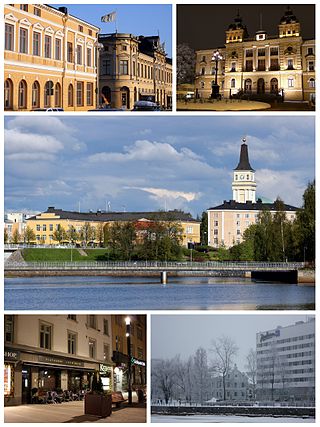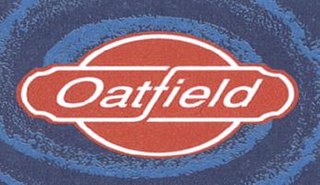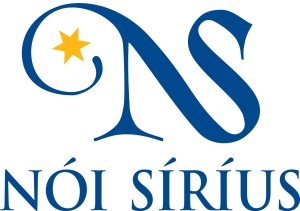
Oulu is a city in Finland and the regional capital of North Ostrobothnia. It is located on the northwestern coast of the country at the mouth of the River Oulu. The population of Oulu is approximately 215,000, while the sub-region has a population of approximately 263,000. It is the 5th most populous municipality in Finland, and the fourth most populous urban area in the country. Oulu is also the most populous city in Northern Finland.

Salty liquorice, salmiak liquorice or salmiac liquorice, is a variety of liquorice flavoured with salmiak salt, and is a common confection found in the Nordic countries, Benelux, and northern Germany. Salmiak salt gives salty liquorice an astringent, salty taste, akin to that of tannins—a characteristic of red wines, which adds bitterness and astringency to the flavour. Consuming salmiak liquorice can stimulate either a savoury or non-savoury palate and response. Anise oil can also be an additional main ingredient in salty liquorice. Extra-salty liquorice is additionally coated with salmiak salt or salmiak powder, or sometimes table salt.

GB Glace is the largest ice cream company in Sweden. It was founded in 1942 and after they had become a partner in 1973, was eventually fully purchased by the Anglo-Dutch company Unilever in 1996.

Leaf International BV was a confectionery company founded in the 1940s. Leaf had sales of approximately €527m (2010) and 2,400 employees. It had 11 factories in seven countries. Leaf was owned by CVC Capital Partners, Nordic Capital, and management. Bengt Baron was the CEO of Leaf.
Philip Ulric Strengberg was a businessman in Jakobstad and the majority owner of the Ph. U. Strengberg tobaccy factory, which he co-owned together with Wilhelm Schauman.

Oatfield was a chocolate and confectionery manufacturer located in Letterkenny, County Donegal, Ireland. The company was the oldest confectionery manufacturer in Ireland.

Valtion lentokonetehdas was a Finnish aircraft manufacturing company that was founded on 23 February 1928 from the IVL or I.V.L. factory, founded in 1921.

Leijona is a Finnish watch brand owned by the company Oy Perkko. History of the brand dates back to 1907 when Johan Werner Lindroos started importing watches into Finland. The brand has been owned by the Perkko family since 1919. The watches were originally manufactured in Switzerland, and later mostly in Japan and China. In recent years, the brand has reintroduced Swiss made watches as a part of its collections, most notably the high-end Leijona Heritage 1907 collection developed together with watchmaker Kari Voutilainen.

Nói Síríus is an Icelandic chocolate and confection manufacturer founded in 1920. The company is a wholly-owned subsidiary of the Norwegian Orkla conglomerate. Hallgrímur Benediktsson took over as main owner in the 1920s, and his grandson, Finnur Geirsson, was the company's president up until late 2021 when Lasse Ruud-Hansen took over after Orkla had Bought the rest of the shares in early 2021. Nói Síríus is Iceland's biggest candy producer and its candies have been a traditional part of camping trips since 1933, along with stockfish.

Sisu is a Finnish brand of candy, currently produced by Leaf International.

Vanajan Autotehdas Oy (VAT) was a producer of heavy vehicles based in Hämeenlinna, Finland. The company was founded as Yhteissisu Oy in 1943 by the Finnish government and a number of major Finnish companies with the aim of producing lorries and buses for the Finnish Defence Forces. World War II was over before the company could start series production; it was renamed Vanajan Autotehdas and the marque became Vanaja. Subsequently, the production consisted of outdated lorry models, partly built from military surplus materials. After overcoming initial difficulties, the company modernised its products, became profitable and grew until the mid-1950s. Many major components, including engines, were imported. Diesel engines became widely available in 1955, and in 1959 VAT introduced its most significant innovation, the full load lifting tandem axle mechanism, which improved off-road capability significantly; the system is now used in Sisu vehicles.
Panda Oy is a Finnish confectionery company based in Vaajakoski, Jyväskylä. The company was founded in 1920 by SOK. Panda is known for its liquorice and chocolate products.

Callio is a project to oversee the reuse of the Pyhäsalmi Mine, located in the town of Pyhäjärvi in Finland. Callio aims to make Pyhäsalmi Mine an operating environment for businesses and an underground research facility.

Oy Lehtoniemi Ab was a Finnish engineering and shipbuilding company, which operated in 1902–1930. The yard was located in Lehtoniemi, Joroinen in Mikkeli Province at lake Saimaa.

Fingersoft is a Finnish video game developer based in Oulu. Fingersoft is one of the most northern game studios in the world, located just 170km south of the Arctic Circle. It is best known for the mobile games Hill Climb Racing and Hill Climb Racing 2, which together have over 2 billion installations.

Marianne is a Finnish mint chocolate candy originally developed in 1949 by Chymos, now produced by Fazer. Marianne candies have a hard peppermint-flavoured shell and a chocolate filling.

Mynthon is a Finnish brand of pastilles owned by Cloetta. It has been produced since the 1970s. Mynthon is the best selling brand of pastilles in Finland with a market share of about 30%: its annual sales are about 22 million items. As well as Finland, Mynthon is sold in the Baltic countries, Sweden and Norway. Mynthon is considered an icon of refreshment. The pastilles are especially used to relieve a sore throat.

Chymos Oy was a Finnish company founded in 1906, producing juice, jam, wine, liqueurs and candy. In 1993 the company's candy production was bought out by Fazer, and in 2006 Chymos was fully assimilated into Cloetta Fazer.
Pingviini is a Finnish brand of ice cream owned by Fronen Finland. Known for its logo featuring a penguin, Pingviini brand ice cream has been sold in Finland since the 1930s.
Yrjö Wilhelm Jalander was a Finnish pharmacist and the founder of Oy Merijal Ab and the pharmaceutical factory Leon.

















